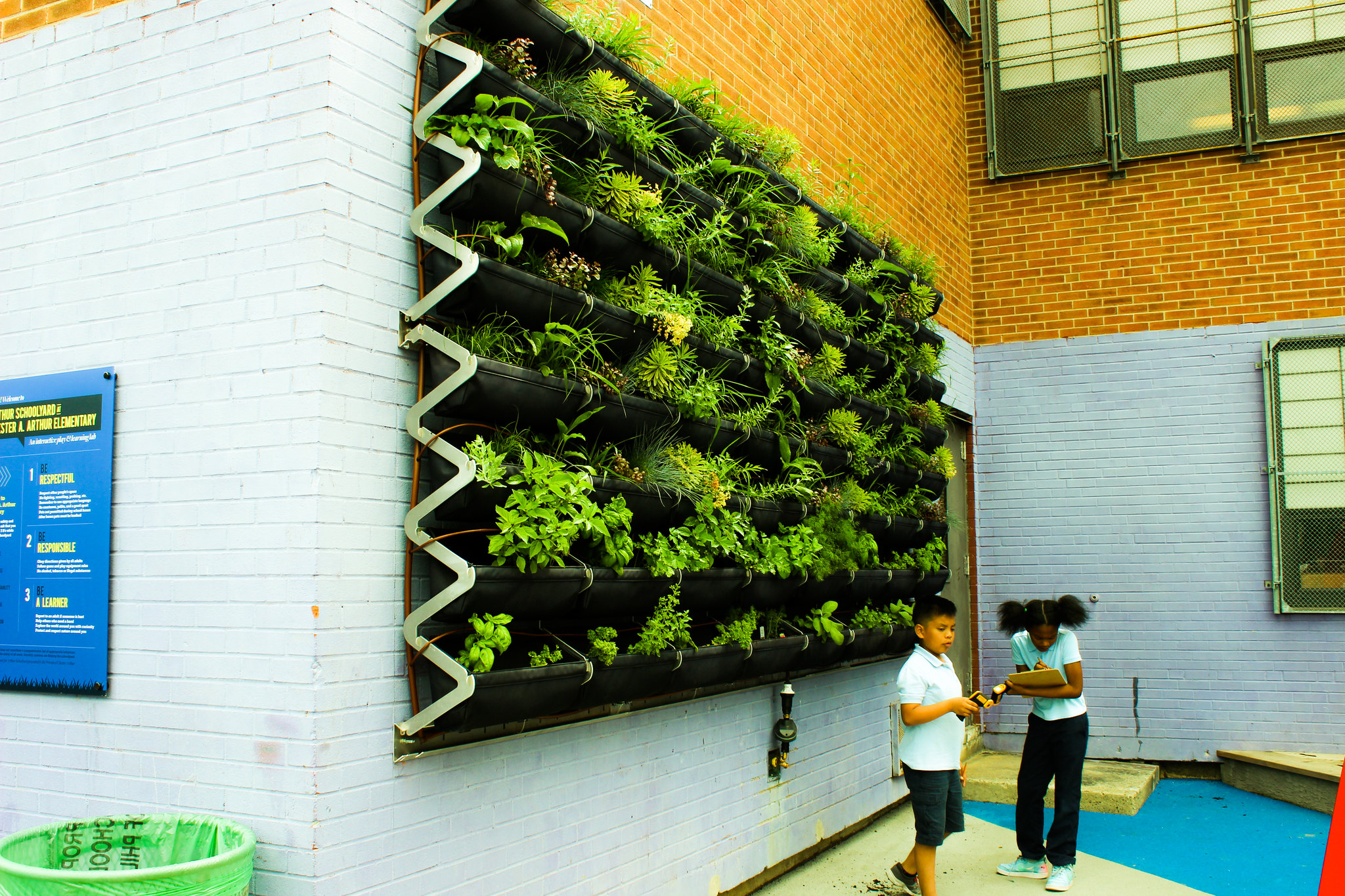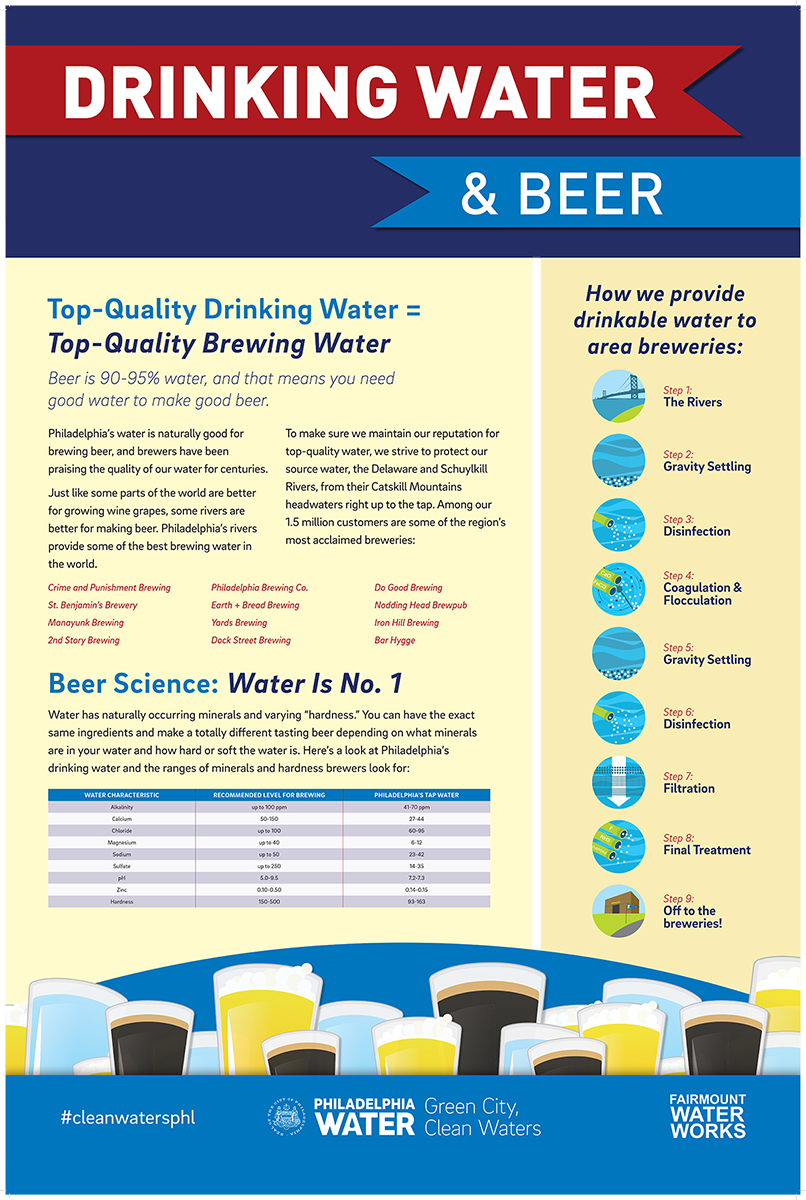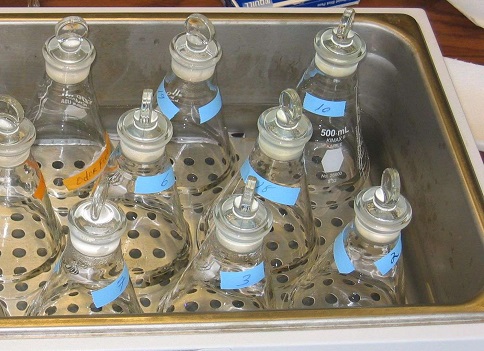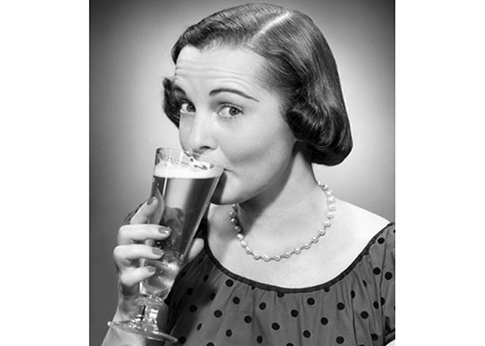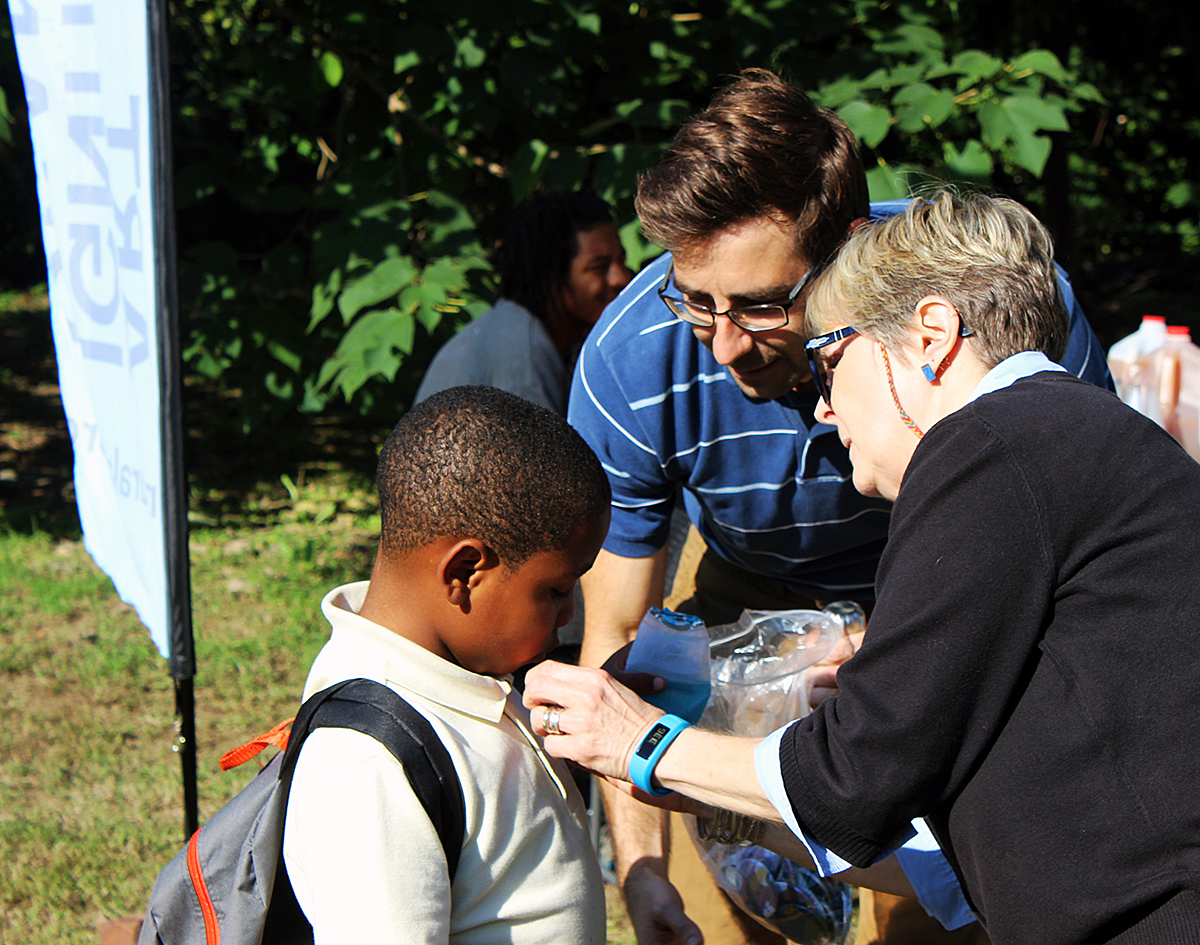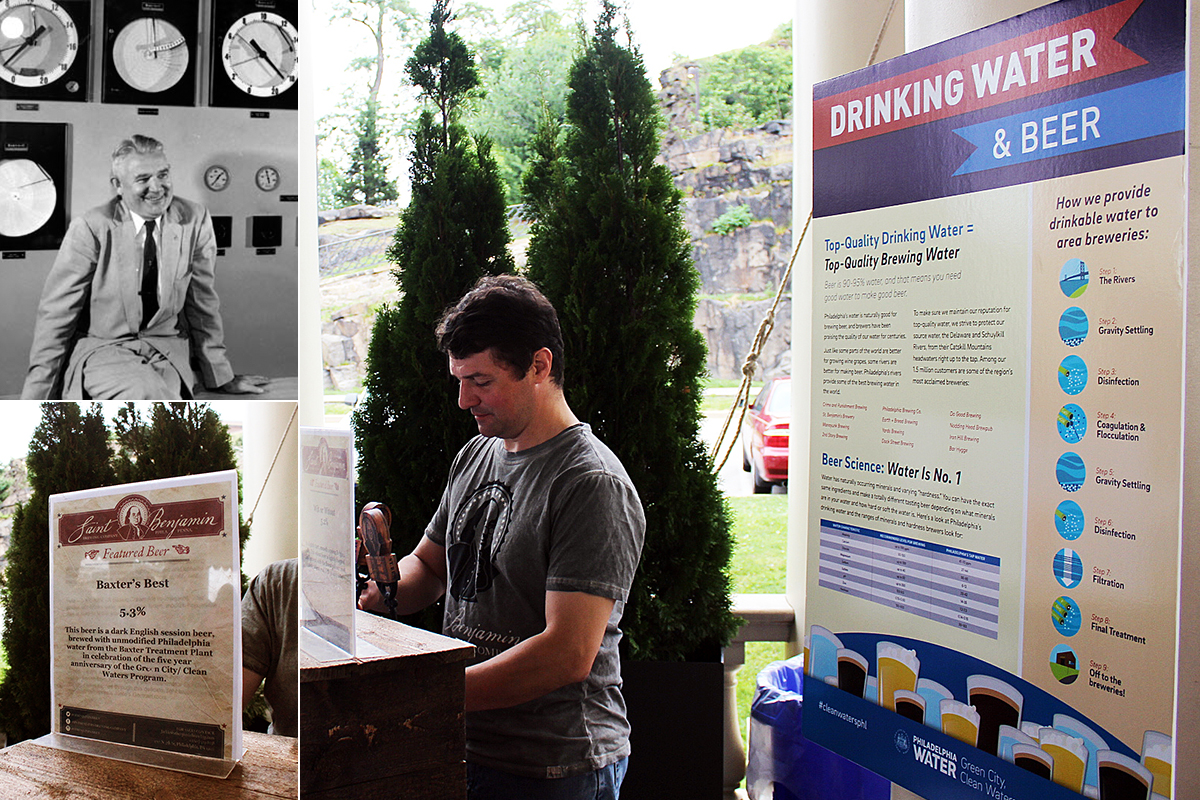
From right to left, counterclockwise: Tim Patton pours Baxter's Best at the Green City, Clean Waters 5-year party; the beer's namesake at top left in in 1961; a placard describing the character of the beer. Credit: Brian Rademaekers and PhillyH2O.org
In marking the five-year anniversary of Philadelphia’s Green City, Clean Waters program, we’ve been busy talking about the importance of protecting the Delaware and Schuylkill Rivers—the source of drinking water for over 1.5 million people in Philadelphia alone.
While we usually think about our drinking water as something residents consume in cold glasses from their kitchen tap, in a way, that water is also often served via a different sort of tap—those found at the hundreds of Philly bars proudly pouring beers brewed right here in our fair city.
After all, most beer is about 90 percent water, and you can’t make good beer without good water. Here in Philadelphia, we have nearly a dozen breweries within city limits, and each one of them uses the very same water you drink each day and brew your coffee with each morning.
And, because their business relies on top-quality water, Philly’s brewers tend to be very invested in protecting our source waters.
That’s what inspired Saint Benjamin Brewing Company in Kensington to create “Baxter’s Best,” a special ale celebrating what Green City, Clean Waters investments have accomplished so far: a 1.5 billion gallon-per year reduction in stormwater pollution.
In addition to serving it at their 5th Street tasting room and local bars, Saint Benjamin treated Green City, Clean Waters supporters to Baxter’s Best at the June 16 “5 Down” celebration marking the first five years of the 25-year program.
In their efforts to draw attention to the quality of Philly’s water and the importance of protecting our rivers, Saint Benjamin’s head brewer, Andrew Foss, came up with a creative approach that highlights what you might call the Delaware River’s “terroir.”
Because of natural minerals and varying acidity (pH), different rivers around the world are better for brewing different beers—part of the reason Dublin is famous for dark stouts, and Pilsen is famous for … light colored pilsners. The science is somewhat complicated, but in essence, things like pH and hardness change the way water interacts with the malted and roasted grains that give beer much of its flavor. (Read about your local water profile.)
In pondering how to make a Philly beer that highlights Philly water, Foss wondered: What style of beer is ideal to make using water pulled from Delaware River?
“Usually, when brewers work with municipal water sources, we make small adjustments to the water, such as altering the pH or adding minerals that the local water is lacking,” says Saint Benjamin Co-Founder Tim Patton. “But for Baxter’s Best, Foss designed a beer that tastes best when using pure, unaltered Philadelphia tap water. We simply filtered out the added chlorine (used to keep water safe all the way to customers’ taps), then immediately got to work producing the beer, creating a ‘Colonial-style’ ESB that celebrates the city’s source water.”
The result is a beer that they describe as “dark … with roasted flavor and creamy taste, but still supple and light at around 4.5% ABV: perfect for summer drinking.”
That brings us to the name. Why Baxter’s?
Like about 60 percent of Philadelphians, Saint Benjamin pulls their water from our Baxter Water Treatment Plant on the Delaware River. Our biggest and longest-operating drinking water plant, Baxter can produce about 320 million gallons of top-quality water per day and is named after Samuel S. Baxter, an accomplished engineer who served as Commissioner from 1952-72.
The word “Best,” Patton explains, refers to the moniker British brewers used to describe traditional English session ales.
You can read more about beer and drinking water below, and remember, each time to raise a glass of Philly-brewed beer, you’re enjoying a hand-crafted brew that started with top-quality water drawn from our local rivers—resources we can all agree are worth protecting!
See the “Beer and Drinking Water” poster featured at the 5 Down celebration:
